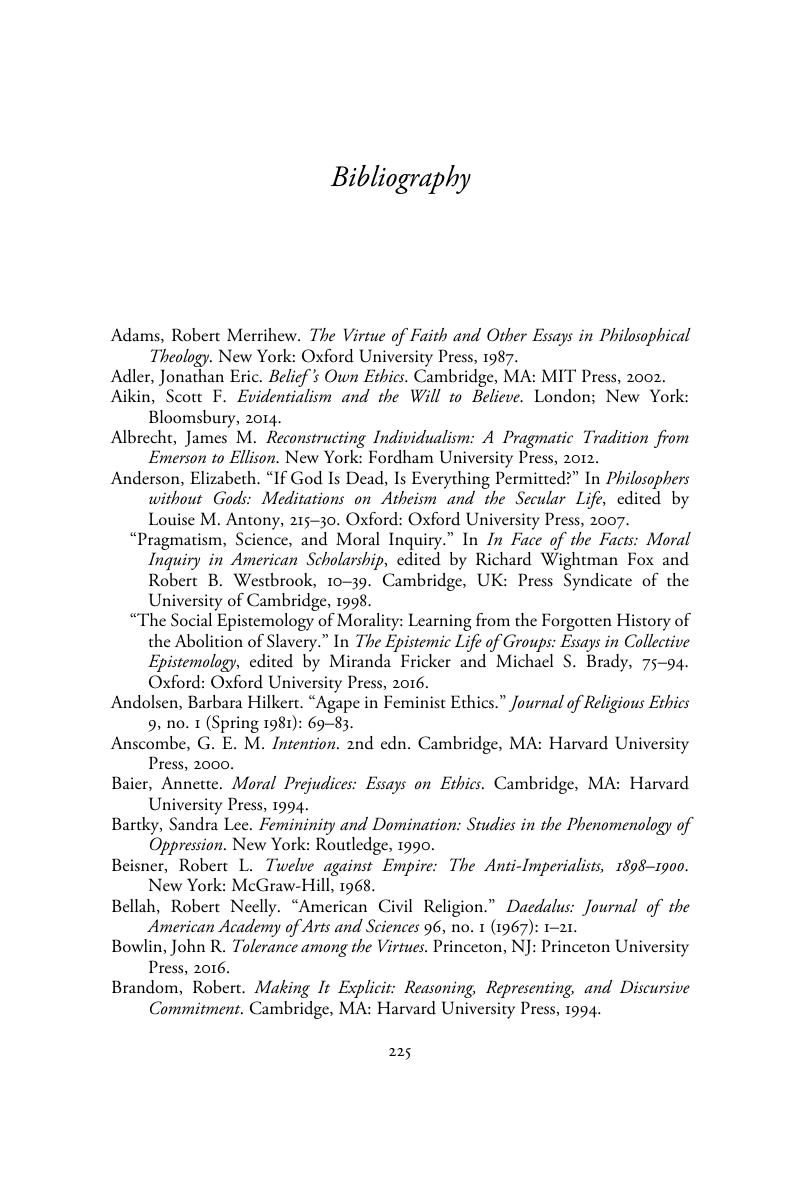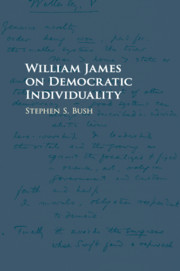Book contents
- William James on Democratic Individuality
- William James on Democratic Individuality
- Copyright page
- Dedication
- Contents
- Preface
- Abbreviations of James’s Works
- Introduction
- Chapter 1 The Political James
- Chapter 2 Collective Responsibility and Truth
- Chapter 3 Collective Responsibility for Morality
- Chapter 4 Moral Objectivity
- Chapter 5 Individuals and Responsibility
- Chapter 6 Sensitivity to Strangers
- Chapter 7 Individuality and Social Change
- Chapter 8 Heroes and Citizens
- Chapter 9 Religion and Motivation
- Conclusion
- Bibliography
- Index
- References
Bibliography
Published online by Cambridge University Press: 13 November 2017
- William James on Democratic Individuality
- William James on Democratic Individuality
- Copyright page
- Dedication
- Contents
- Preface
- Abbreviations of James’s Works
- Introduction
- Chapter 1 The Political James
- Chapter 2 Collective Responsibility and Truth
- Chapter 3 Collective Responsibility for Morality
- Chapter 4 Moral Objectivity
- Chapter 5 Individuals and Responsibility
- Chapter 6 Sensitivity to Strangers
- Chapter 7 Individuality and Social Change
- Chapter 8 Heroes and Citizens
- Chapter 9 Religion and Motivation
- Conclusion
- Bibliography
- Index
- References
Summary

- Type
- Chapter
- Information
- William James on Democratic Individuality , pp. 225 - 231Publisher: Cambridge University PressPrint publication year: 2017



